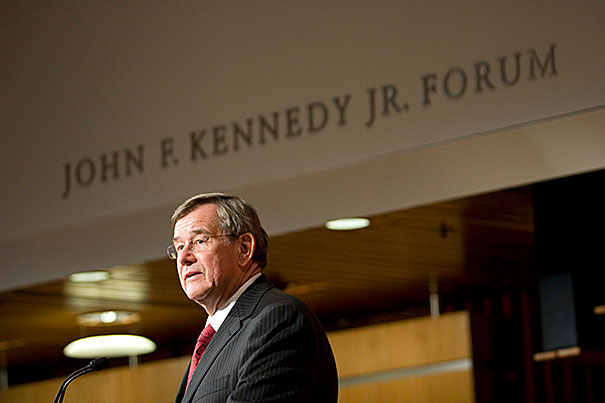Nation & World
-

U.S. needs to keep its friends closer, Pence says
First-term Trump VP: ‘If America isn’t leading the free world, the free world is not being led.’
-

‘Vibes or hunches’ don’t help win elections
Political analytics conference convenes experts on voter trends, election forecasting, behavioral research
-

U.S. just didn’t get China, Bolton says
Asian nation now main economic, military threat to Western democracies, according to former national security adviser
-
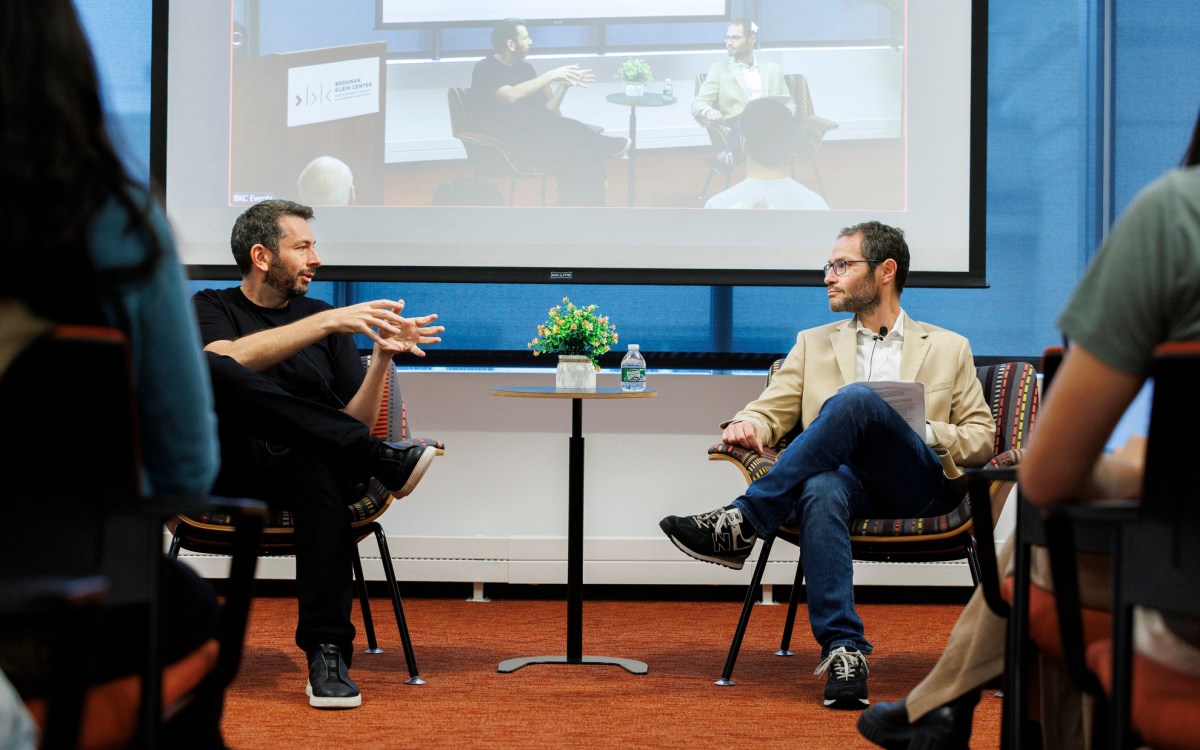
Artificial intelligence may not be artificial
Researcher traces evolution of computation power of human brains, parallels to AI, argues key to increasing complexity is cooperation
-
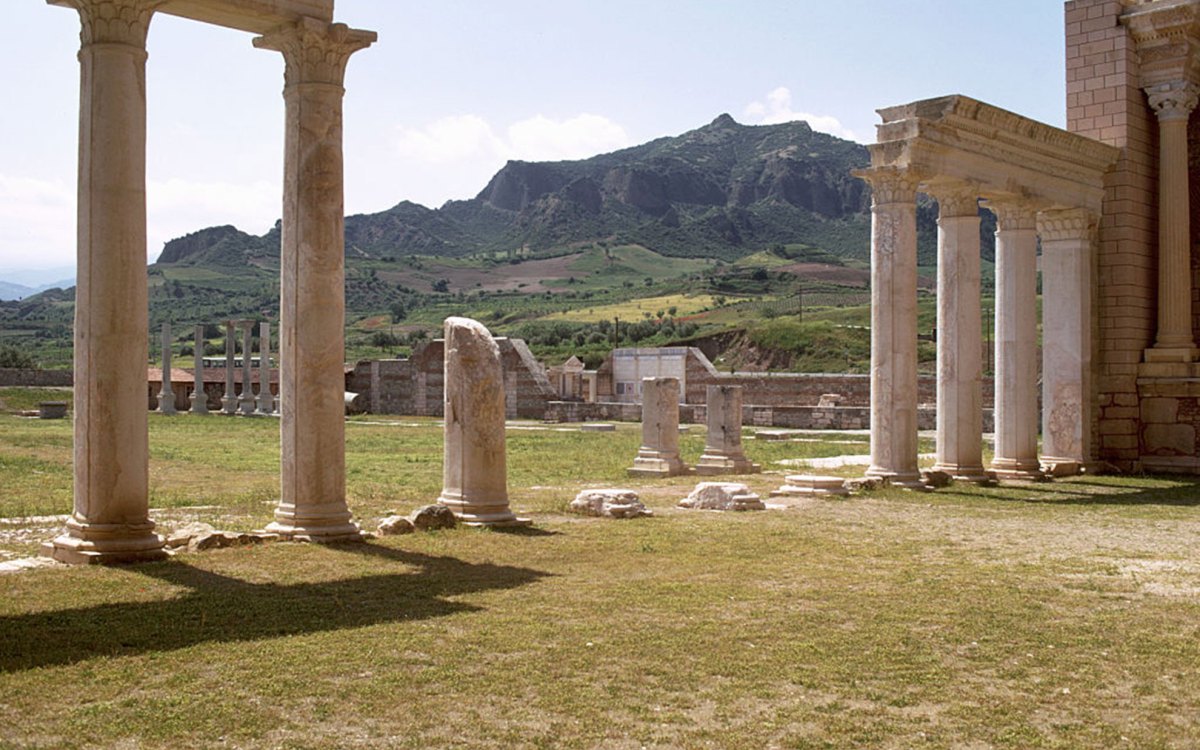
Sardis named a UNESCO World Heritage Site
Designation comes as Harvard’s decadeslong archaeological dig uncovers new secrets from remains of ancient Turkish city
-
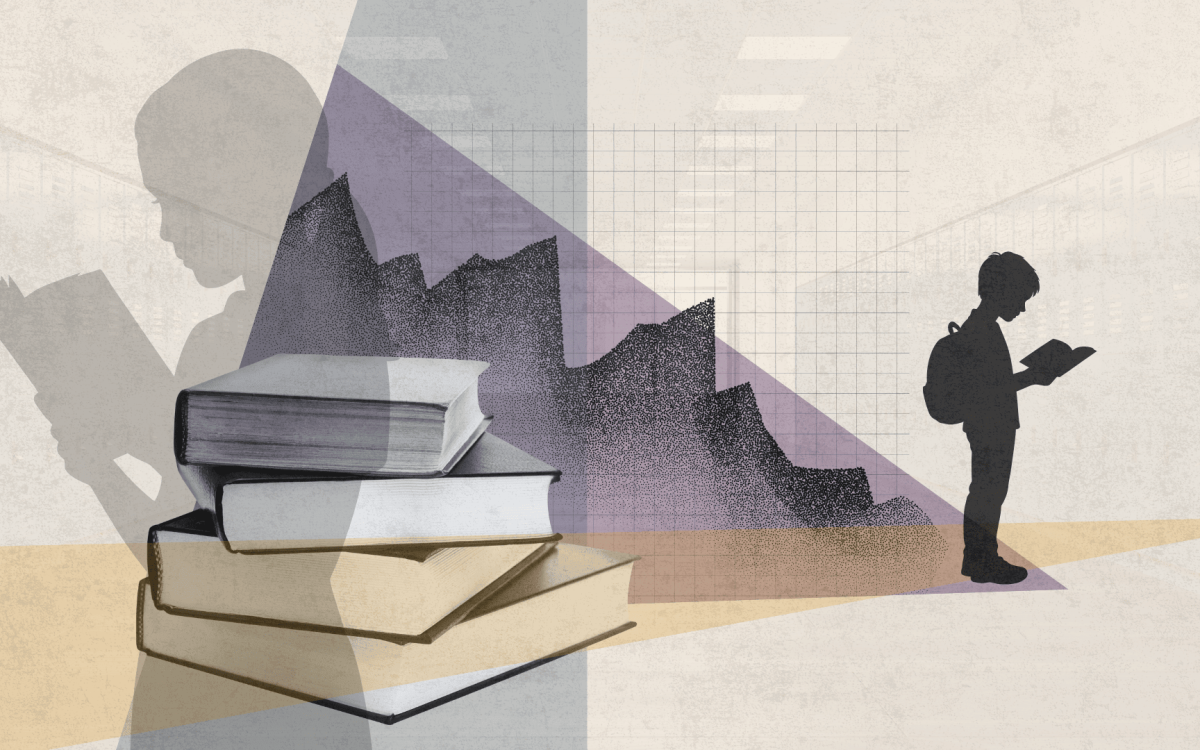
What’s driving decline in U.S. literacy rates?
In podcast, experts discuss why learning to love to read again may be key to reversing trend
-
HarvardX marks the spot
Harvard has rolled out its first two courses on the new digital education platform edX, with more than 100,000 learners worldwide signing on.
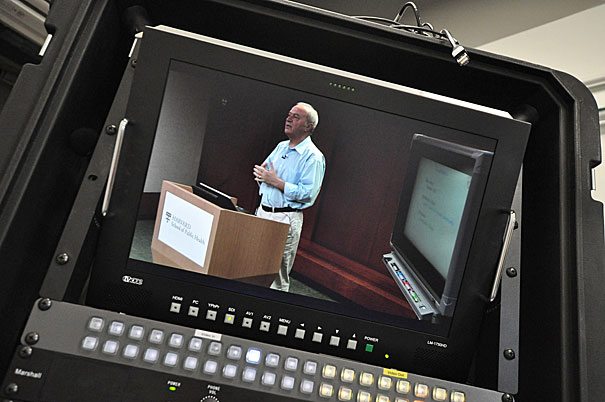
-
Well, that’s debatable
Four Harvard experts — on voice, movement, public speaking, and trial law — critique the last presidential debate and offer the candidates their tips for the next matchup.
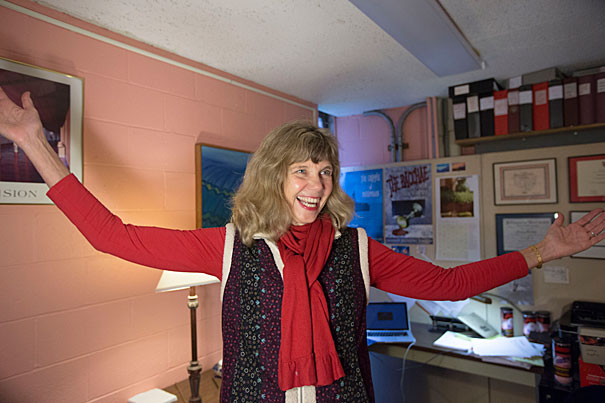
-
Religion and politics, now
In a talk sponsored by Harvard Divinity School, four religious scholars explored the question of “Religion and the Election: Does it Matter?”
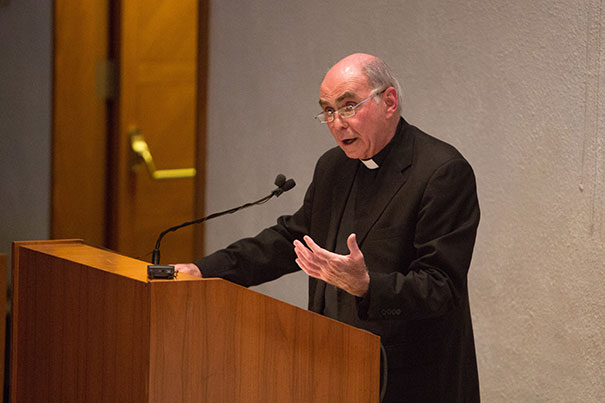
-
A middle way on Tibet
Despite a grim situation now, says the Harvard-trained leader of Tibet’s government in exile, frank talks could yet unlock decades of turmoil with China.
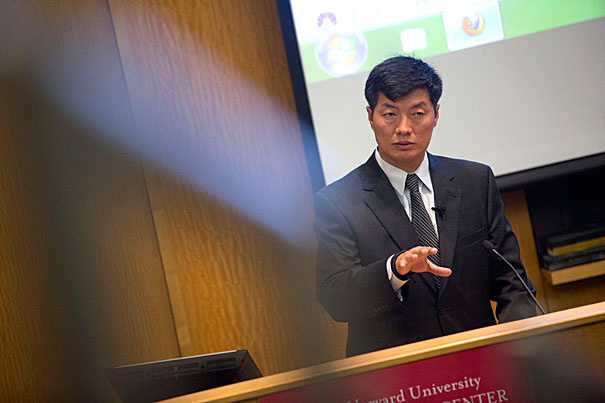
-
Health care could swing voters
A new analysis of 37 national opinion polls conducted by 17 survey organizations finds that health care is the second most important issue for likely voters in deciding their 2012 presidential vote. This is the highest that health care has been ranked as a presidential election issue since 1992.
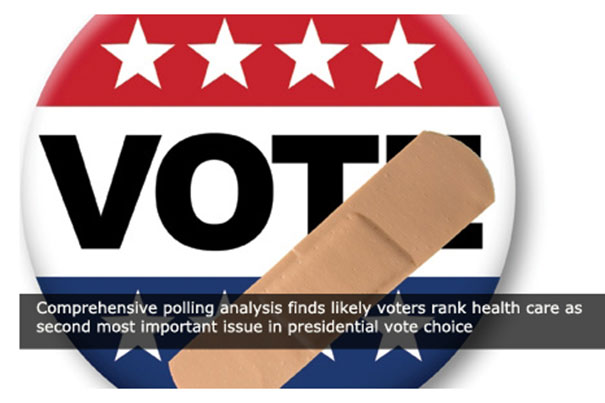
-
Feminism without perfection
Harvard Business School students gathered Tuesday evening to kick off a yearlong celebration of the 50th anniversary of the first class of female M.B.A.s. But as Barnard College President Debora Spar reminded the group, women at the top of the ladder still face hurdles — including their impossible demands on themselves.
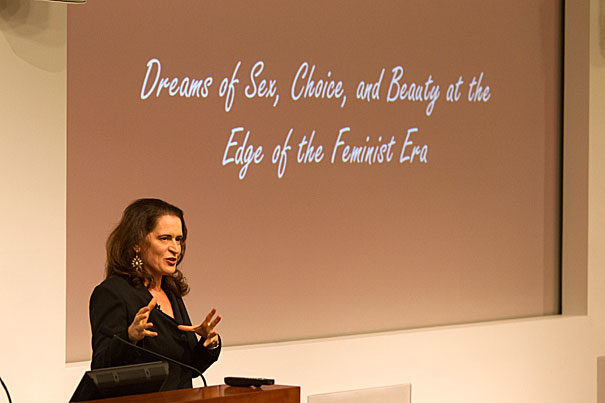
-
Inside the Supreme Court
Political pundit, author, and Supreme Court watcher Jeffrey Toobin offered an inside look at the nation’s top judicial body during a discussion at Sanders Theatre on Thursday.
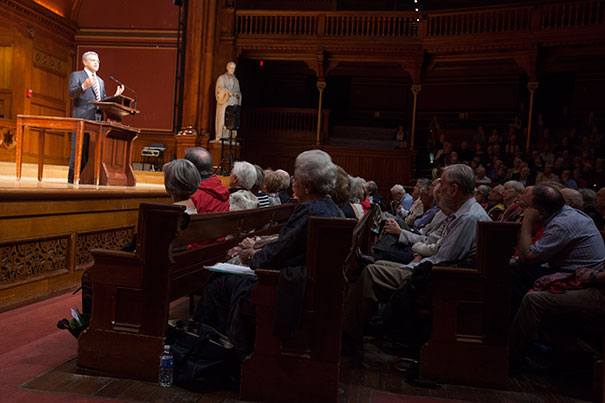
-
A peek behind the podium
Veteran political strategists weighed in on the blood, sweat, and tears that go into prepping a presidential candidate, during a Harvard Kennedy School watch party for the first presidential debate. The vice presidential debate is 9-10 p.m. Oct. 11 from Centre College, Danville, Ky. The second presidential debate is 9-10:30 p.m. Oct. 16, Hofstra University in Hempstead, N.Y.
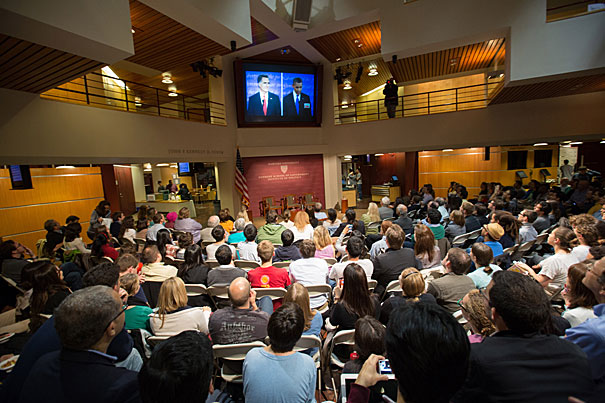
-
A trio of ideas for education
Joel Klein, the former chancellor of the New York City Department of Education, spoke at the Harvard Graduate School of Education on Monday, outlining his plan for a “transformative” approach to the country’s ailing primary and secondary education system.
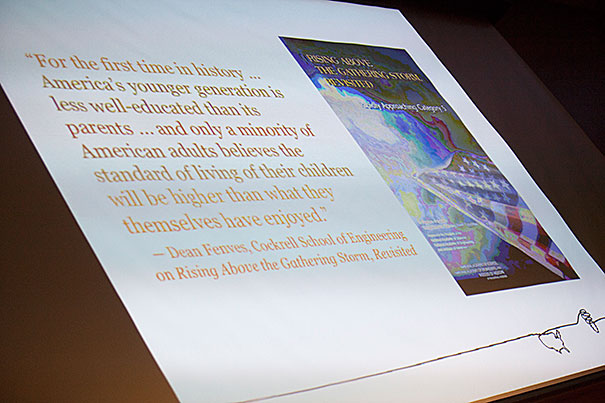
-
The housing industry, adrift
Former HUD Secretary Mel Martinez called for innovative solutions to the nation’s housing crisis and proposed less government, more private-sector initiative, and clarity on Dodd-Frank financial reforms.
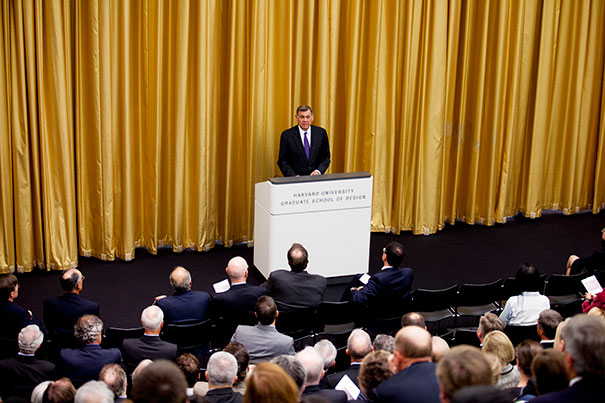
-
When Armageddon loomed
A new website at the Harvard Kennedy School marks the 50th anniversary of the Cuban missile crisis. In an interview, Belfer Center director Graham Allison outlines the lessons learned from the dangerous yet deft dance of diplomacy.
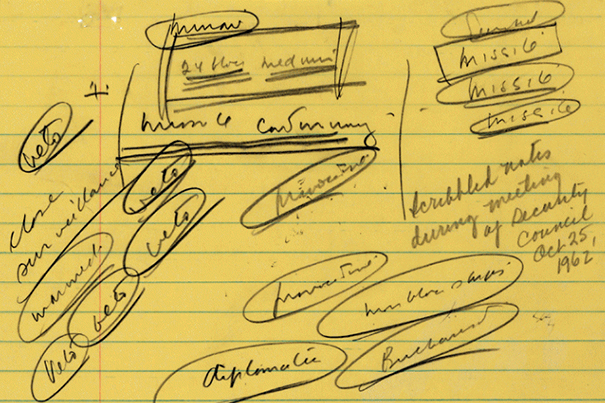
-
Startups, sped up
Students from across Harvard’s Schools gathered at the Innovation Lab Sept. 28-30 for the StartUp Scramble, a mad-dash affair designed to take their business ideas from concept to pitch in just 48 hours.
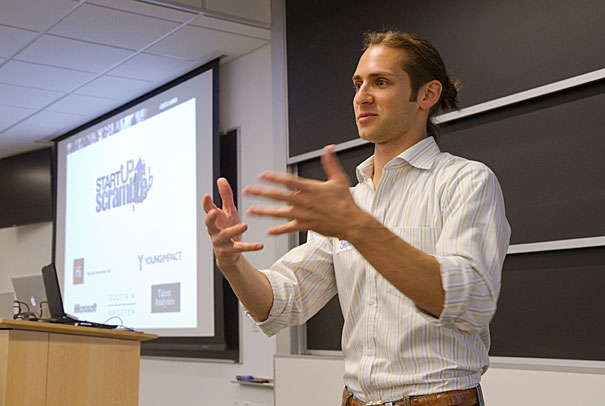
-
‘The Paper Chase’ at 40
Author and Harvard Law School graduate John Osborn Jr. rose to fame in the ’70s with the publication of his book “The Paper Chase” about his experience at the School. He sat down for a Q-and-A session with Dean Martha Minow on the book’s 40th anniversary.
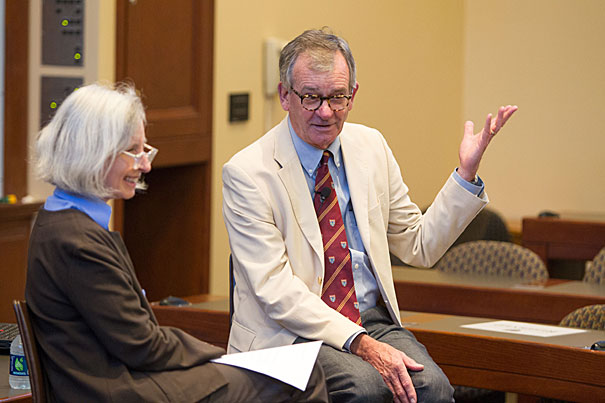
-
Inside-out look at election 2012
Hosted by the Nieman Foundation, a panel of political journalists shared their insights with Harvard faculty members, including their predictions about the outcome in the race for the White House.
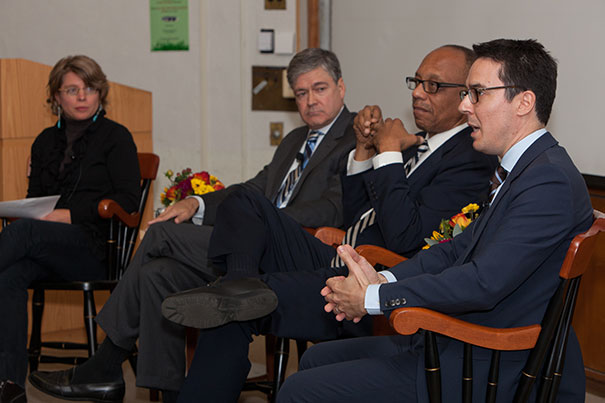
-
Freedom in motion
Burmese activist Aung San Suu Kyi delivered the Godkin Lecture and took questions from students last night at Harvard Kennedy School.
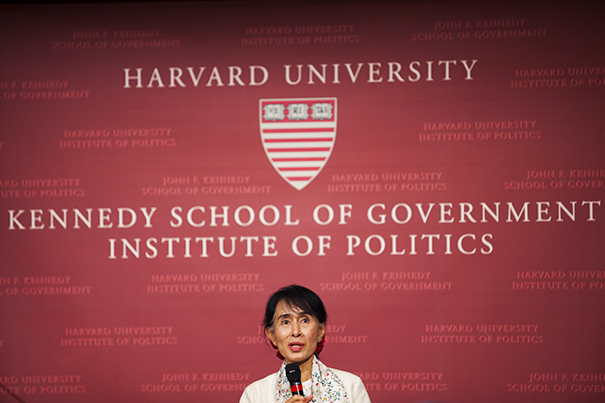
-
Hope for continental recovery, in 2013
A top European Union official says there are signs that reform measures taken in response to the economic crisis in Europe are working, and that a recovery could begin in 2013.
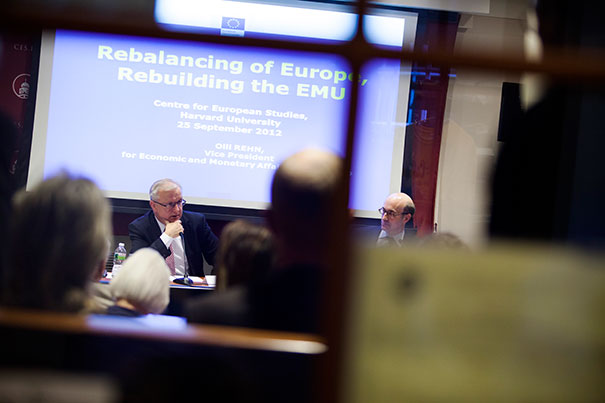
-
A firm voice on Europe
Jan Fischer, former PM and current presidential candidate in the Czech Republic, talked to a Harvard audience about the debt crisis and the possibility of a full European federation.
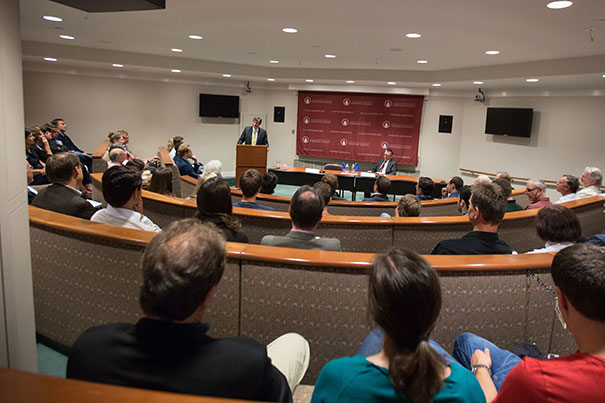
-
Middle East in motion
Speaking at the Harvard Kennedy School, journalist Rami Khouri presented an overview of the “bewildering and exhilarating changes” that have swept the Middle East since the Arab Spring.
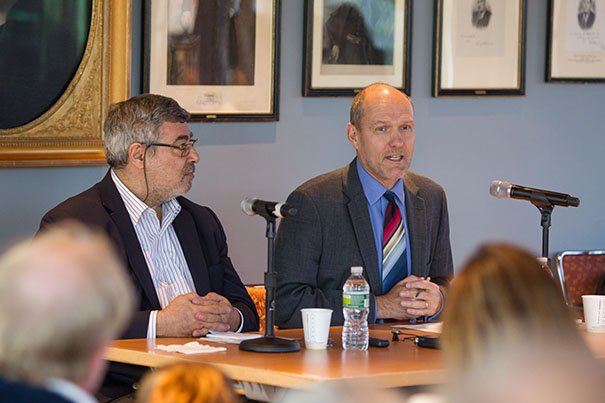
-
Explaining the baby bust
Postindustrial countries from Japan to Italy are experiencing startling low birthrates, but the entry of women into the workforce isn’t to blame, according to Sociology Professor Mary Brinton, whose research looks at more subtle factors, including attitudes toward men’s and women’s roles in the workplace and the home.
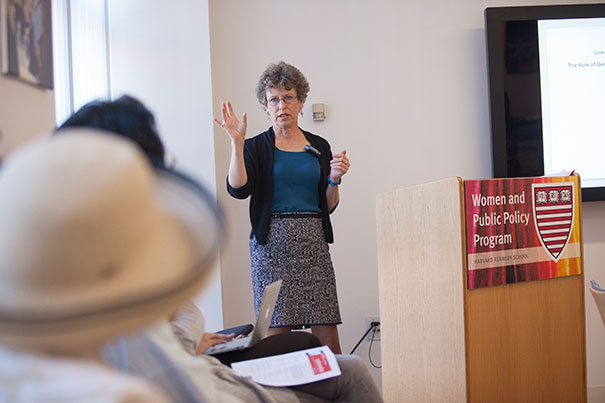
-
A warning from inside Tunisia
A Tunisian constitutional expert said Sept. 17 that recent violence, coupled with moves by the ruling Islamist Ennahda party to enshrine religion in the nation’s new constitution, are a bad sign for a pluralistic, democratic future.
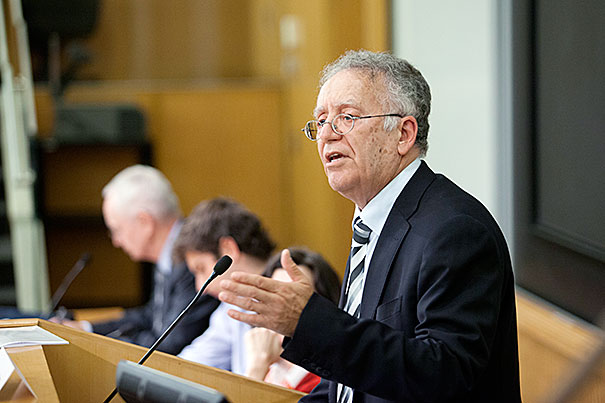
-
Suggestion of a married Jesus
Four words on a previously unknown papyrus fragment provide the first evidence that some early Christians believed Jesus had been married, a Harvard professor says.
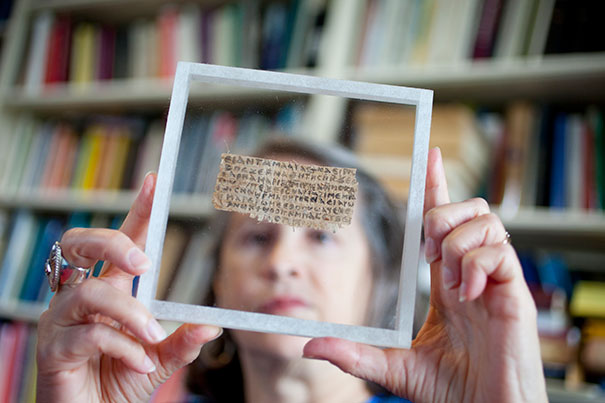
-
“Jesus said to them, my wife”
Four words on a previously unknown papyrus fragment provide the first evidence that some early Christians believed Jesus had been married, Harvard Professor Karen King told the 10th International Congress of Coptic Studies, September 18, 2012.
-
Poverty in America, 2012
Scholars from across the nation gathered at Harvard on Friday to examine the persistent problems of race, poverty, and economic inequality in the United States. The conference was focused around the 25th anniversary of the publication of “The Truly Disadvantaged” by University Professor William Julius Wilson.
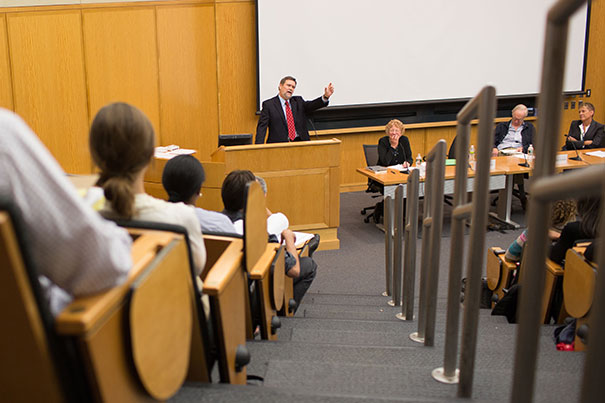
-
Block the vote
Should citizens have to show photo identification to vote? In recent years, many states have decided they do. A group of panelists debated the hotly partisan issue — and the possible implications for poor and elderly voters — at Harvard Kennedy School.
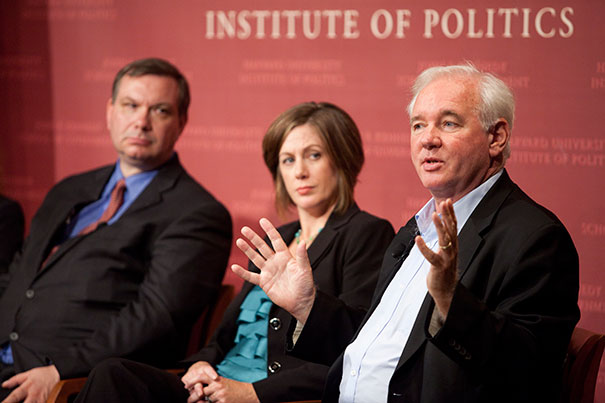
-
Syria in the crosshairs
Murhaf Jouejati, a professor and a member of the Syrian National Council, a coalition of exiled opposition groups, offered his perspective on the crisis in Syria.
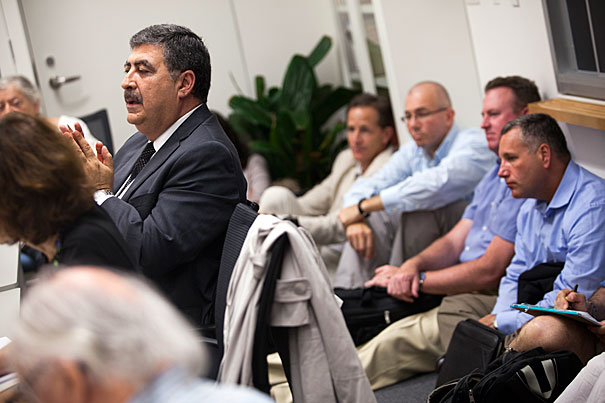
-
After 9/11, health lessons ignored
The public health lessons of 9/11 and subsequent anthrax attacks haven’t been learned, said Pulitzer Prize-winning author Laurie Garrett during a talk at the Harvard School of Public Health.
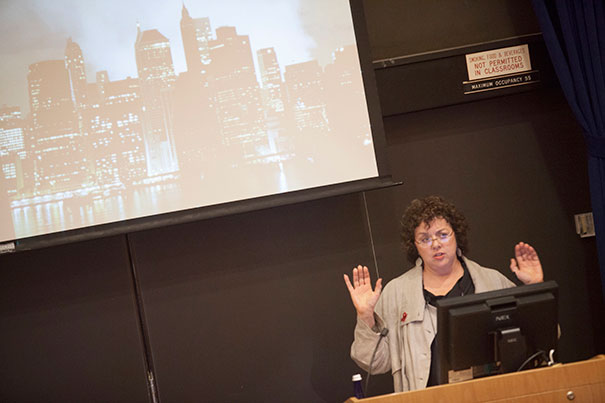
-
An app aimed at transparency
Super PAC App, the brainchild of recent Harvard Kennedy School graduate Jennifer Hollett and her MIT classmate, gives voters information on the big-money donors behind this season’s campaign ads in real time.
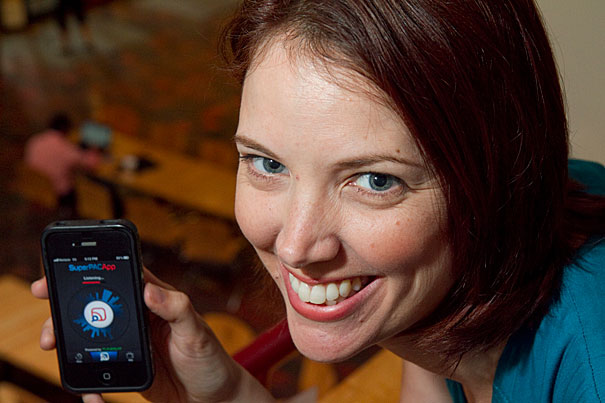
-
More than words
Nieman Foundation welcomes 24 new fellows, including some who tell their gripping stories using tools beyond words.
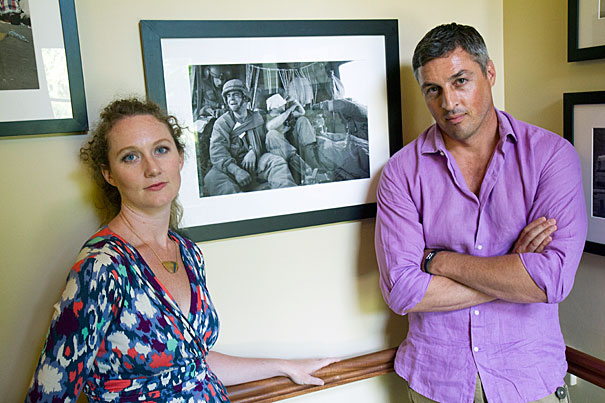
-
Guides to the gallows
The Harvard Law School Library’s “Dying Speeches” collection of English crime broadsides — street literature sold at public executions — is one of the largest in the world and the first to be completely digitized.
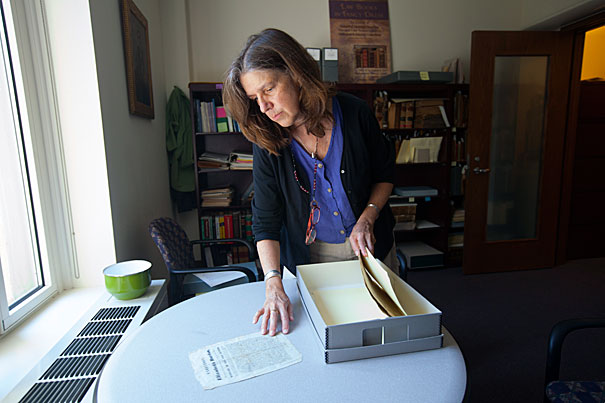
-
School vouchers’ greatest impact
A new study on the impact of school vouchers on college enrollments shows that the percentage of African-American students who enrolled part time or full time in college by 2011 was 24 percent higher for those who had won a school voucher lottery and used their voucher to attend a private school.
